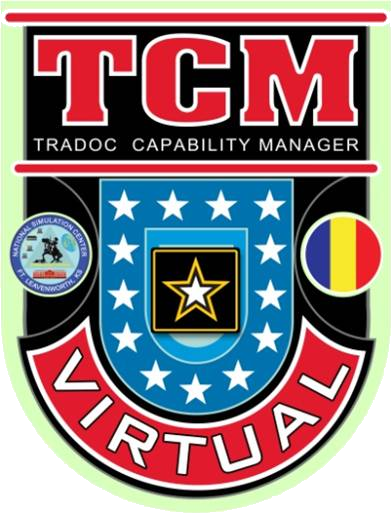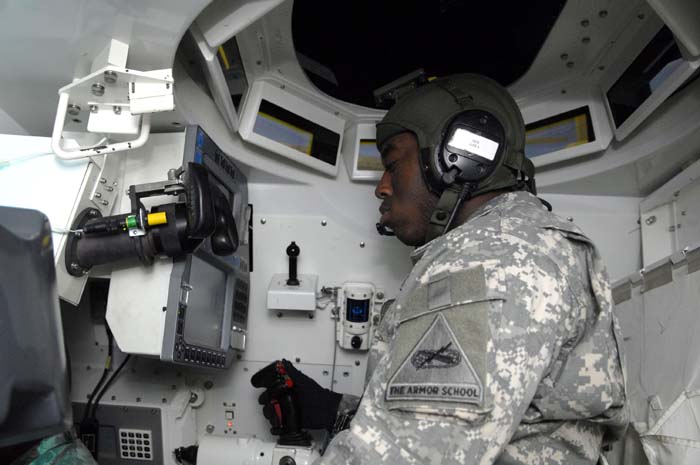TPO Virtual & Gaming

TCM Virtual & Gaming serves as the Army’s user representative for virtual and gaming capabilities to satisfy Army training requirements. TCM Virtual & Gaming plans, manages and integrates the Army’s capability development activities for virtual and gaming simulations and their associated components of the synthetic training environment. It does so in accordance with Army and TRADOC regulations, Joint Capabilities Integration Development System and the Commanding General TRADOC Charter. TCM Virtual & Gaming provide training support for the Generating Force and Operational Army, ensuring current and future virtual and gaming training capabilities are validated, accredited, documented and prioritized for funding and development.
How TCM Virtual & Gaming Helps the Army
- Execute responsibilities outlined in TRADOC Regulations 71-12, 71-20 and TCM Virtual Charter.
- Provide oversight for prioritizing, fielding, testing, evaluation and utilization of virtual simulators and simulations
-
Serve as the user representative for:
- Aviation Combined Arms Tactical Training (AVCATT)
- Non-rated Crew Member Manned Module (NCM3)
- Close Combat Tactical Trainer (CCTT)
- Reconfigurable Vehicle Tactical Trainer (RVTT)
- Dismounted Soldier Training System (DSTS)
- Call for Fire Trainer (CFTT) II/ III
- Engagement Skills Trainer II (EST II)
- Basic Electronics Maintenance Trainer (BEMT)
- Virtual Clearance Training Suite (VCTS)
- Common Driver Trainer (CDT)
- Synthetic Environment Core (SE Core)
- Virtual Battlespace 3 & Training Support Packages
- Human Dimension Modeling (Avatar)
- UrbanSim
- Video Creation Tool
- Emergent Leader Immersive Training Environment (ELITE) Lite
- Bilateral Negotiation Trainer (BiLAT)
- Biometrics Forensics (BioFor)
- Operational Language and Culture Training System
- Provide centralized total system management and integration of all DOTMLPF considerations.
- Monitor total system development, testing and evaluation, corrective actions, acquisition and fielding.
- Coordinate the development of all requirements documents.
- Justify and validate system requirements at all levels of the Army, Department of Defense and Congress.
- Participate in decision reviews (Army Requirements Oversight Council, Joint Requirements Oversight Council).
- Identify and prioritize system hardware and software deficiencies to the Materiel Developer (MATDEV) for corrective action.
- Participate in MATDEV concept analyses, cost performance trade-off and Cost as an Independent Variable analysis.
- Co-develop the Program Objective Memorandum w/MATDEV.
- Participate in Analysis of Alternatives studies and evaluations supporting developmental programs.
- Participate in source selection.
- Conduct annual Requirements Control Board.
- Imbeds gaming capabilities in the Combined Arms Training Strategy to provide commanders with options to prepare Soldiers and units for Decisive Action.
- Conduct validation and accreditation to make sure gaming systems meet the Army’s needs.
- Provide management and oversight of the MilGaming Community of Practice.
Top Priorities
- Management of the current Training Aids, Devices, Simulators and Simulations (TADSS) portfolio through the Long-Range Investment Requirements Analysis (LIRA) process.
 Fielding of new TADSS VBS3 & NCM3
Fielding of new TADSS VBS3 & NCM3- Concurrency of fielded TADSS, Aviation Combined Tactical Trainer (AVCATT) and Close Combat Tactical Trainer (CCTT).
- Identify program funding for redirect to the Synthetic Training Environment (STE).
- Maintain air ground interoperability between AVCATT and CCTT.
- Initiate the Soldier Virtual Training (SVT) capability requirements documents to replace the Engagement Skills Trainer and Call for Fire Trainer.
- Maintain of the MilGaming Portal and MilGaming Forum

- Conduct CAC-TIF initiatives to inform the STE.
- Support Force 2025 and Beyond initiatives.
Contact Us
| Office | Number |
|---|---|
| TCM Virtual & Gaming Operations | 913-684-8259 |

